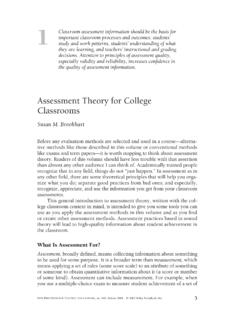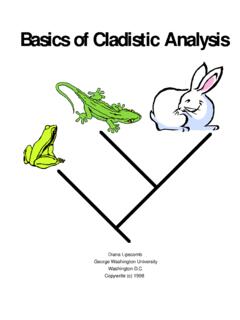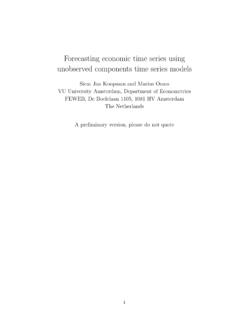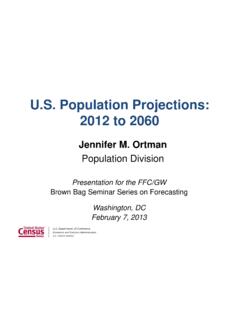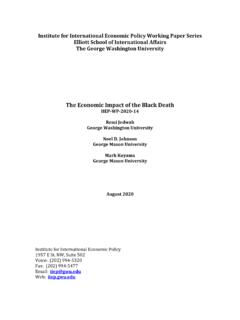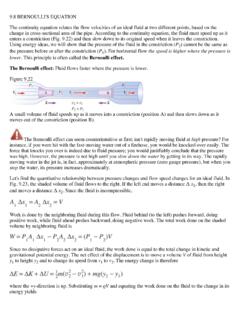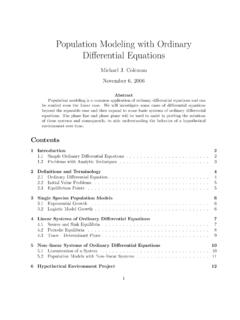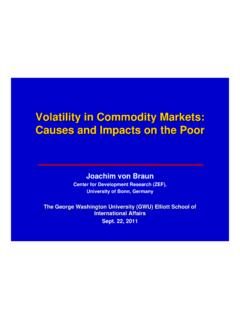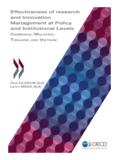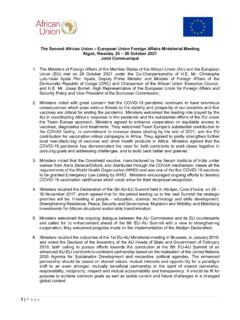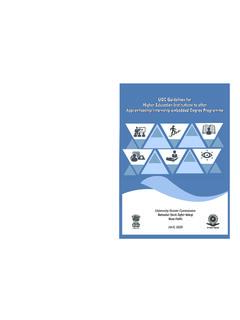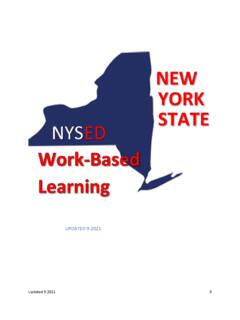Transcription of PROJECT DEVELOPMENT FOR SUSTAINABLE TOURISM
1 GSTAG lobal SUSTAINABLE TOURISM AllianceSustainable TOURISM : International cooperation for DEVELOPMENT ONLINE TOOL KIT AND RESOURCE SERIES 2 PROJECT DEVELOPMENT FOR SUSTAINABLE TOURISMA STEP BY STEP APPROACH5 SUSTAINABLE TOURISM : International cooperation for DEVELOPMENT ONLINE TOOL KIT AND RESOURCE Global TOURISM Achieving SUSTAINABLE GoalsST102. PROJECT DEVELOPMENT for SUSTAINABLE TOURISM A Step by Step ApproachST103. TOURISM Destination Management Achieving SUSTAINABLE and Competitive ResultsST104.
2 TOURISM Investment and Finance Accessing SUSTAINABLE Funding and Social Impact Capital ST105. SUSTAINABLE TOURISM Enterprise DEVELOPMENT A Business Planning ApproachST106. TOURISM Workforce DEVELOPMENT A Guide to Assessing and Designing ProgramsST107. TOURISM and Conservation SUSTAINABLE Models and StrategiesST108. Scientific, academic , Volunteer, and Educational Travel Connecting Responsible Travelers with SUSTAINABLE DestinationsST109. Powering TOURISM Electrification and Efficiency Options for Rural TOURISM FacilitiesGSTAG lobal SUSTAINABLE TOURISM AlliancePrimary AuthorEileen GutierrezContributors Roberta Hilbruner, USAIDD onald E.
3 Hawkins, George Washington UniversityThis publication is made possible by the support of the American People through the United States Agency for International DEVELOPMENT to the Global SUSTAINABLE TOURISM Alliance cooperative agreement #EPP-A-00-06-00002-00. The contents of this publication are the sole responsibility of the author(s) and do not necessarily reflect the views of USAID or the United States DEVELOPMENT FOR SUSTAINABLE TOURISMA STEP BY STEP APPROACHS ustainable TOURISM : International cooperation for DEVELOPMENT ONLINE TOOL KIT AND RESOURCE SERIES Table of Contents Table of Contents.
4 1 Pre 2 Acronyms .. 4 Unit 1 SUSTAINABLE TOURISM PROJECT Concept 5 Unit 2 Developing SUSTAINABLE TOURISM Projects for Funding .. 11 Unit 3 Working with Stakeholders .. 15 Unit 4 Providing Background and Conte 26 Unit 5 Value Chain Analysis .. 40 Unit 6 Major Activities, Monitoring Plans, and PROJECT 44 Unit 7 Descr ib in g PROJECT Management Structure and Estimating PROJECT Costs .. 57 Unit 8 PROJECT Concept 66 Glo ssar y .. 71 74 In accordance with Title 17 section 107, any copyrighted material herein is distributed without profit or payment for non-profit research and educational purposes only.
5 If you wish to use copyrighted materials from this publication for purposes of your own that go beyond fair use, you must obtain permission from the copyright owner. International Institute for TOURISM Studies The George Washington University 2201 G Street, NW Washington, DC 20052 PROJECT DEVELOPMENT for SUSTAINABLE TOURISM /2 Preface This course introduces the participant to developing a SUSTAINABLE TOURISM PROJECT that contributes to international DEVELOPMENT goals. Upon finishing the course, participants will have the tools necessary to complete a successful PROJECT concept note or similar proposal at the design stage.
6 Participants will gain an understanding of standard requirements for concept planning and design and how best to gather needed information. Participants will learn approaches to rapidly assess PROJECT areas and write PROJECT goals, objectives, and activities that embrace the principles of SUSTAINABLE TOURISM . Upon completion of this course, participants will be able to construct a concept note for submission to bi-lateral, multi-lateral, and other donors for SUSTAINABLE TOURISM projects. The target audience consists of professionals engaged in DEVELOPMENT assistance in developing countries and working on SUSTAINABLE TOURISM projects, including staff from donors (such as USAID), government agencies, NGOs, consulting firms, universities, businesses, and related entities.
7 Some specific examples of audiences which would benefit include: Local authorities such as a destination management organization, TOURISM office, promotion agency, or organization exercising governance power over tourist activities Public, semi-public, or civil society administrators or professionals responsible for the DEVELOPMENT , promotion, or organization of TOURISM activities Destination management companies responsible for managing commercial activities for city, theme park, or resort destinations Local, public, or private TOURISM operators offering transportation, lodging, food.
8 Space, attractions, events, or others concerned with enhancing the long-term sustainability and competitiveness of TOURISM destinations Consultants involved in TOURISM planning and DEVELOPMENT University professors teaching TOURISM or planning courses Whether developing a canoe trip or a national ecotourism investment program, each SUSTAINABLE TOURISM PROJECT passes through a life cycle which generally begins with developing a PROJECT concept. The PROJECT concept note or proposal is a key planning and design tool, which most funding organizations require as part of their approval process.
9 It describes in clear terms the projects goals and objectives; the background surrounding the issues; the key challenges and opportunities involved; main activities planned; how outcomes may be measured; the organizations involved and their roles; and a budget estimate. Producing a successful SUSTAINABLE TOURISM PROJECT concept involves early PROJECT planning and coordination efforts. For SUSTAINABLE TOURISM this planning typically involves a rapid assessment process of economic, environmental, and social contexts where stakeholders involvement greatly facilitates an understanding of the PROJECT area and agreement on PROJECT goals, objectives, and activities.
10 Context mapping, value chain analysis, and other participatory approaches such as System-wide Collaborative Action for Livelihoods and the Environment (SCALE ) and the TOURISM Assessment Process (TAP) are tools that rapidly gather information for a SUSTAINABLE TOURISM PROJECT DEVELOPMENT for SUSTAINABLE TOURISM /3 PROJECT concept note. They guide the participant on how to assess: the structure of the TOURISM industry; supply and demand; environmental and social considerations; and, potential PROJECT activities and strategies. By employing participatory approaches throughout these early assessments organizers can identify organizations and individuals needed to support and implement the PROJECT .
